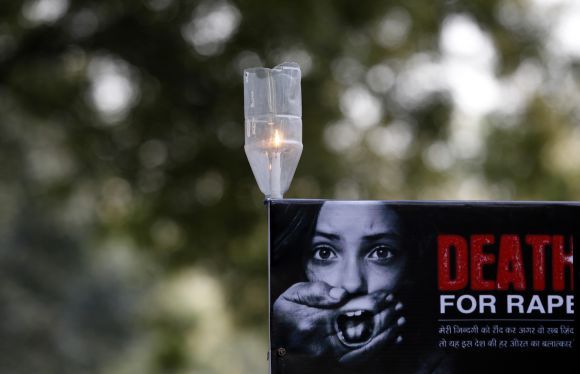 | « Back to article | Print this article |
 The Supreme Court today directed the Delhi police to place before it the dying declaration of the December 16 gang rape victim along with other trial court records of the case in which four convicts were awarded death sentence.
The Supreme Court today directed the Delhi police to place before it the dying declaration of the December 16 gang rape victim along with other trial court records of the case in which four convicts were awarded death sentence.
"If the dying declaration is convincing, then we don't think why this court should interfere in the matter," a bench of justices B S Chauhan and J Chelameswar said while asking the police to produce the documents on the next date of hearing.
It also extended its interim order putting on hold the execution of death sentence of convicts Mukesh and Pawan who approached the apex court against the Delhi high court's order confirming the trial court's order of awarding them capital punishment.
Besides Mukesh, 27, and Pawan, 20), the Delhi high court had also upheld the conviction and death penalty of Akshay Thakur, 29, and Vinay Sharma, 21.
While dismissing their appeals, the high court had termed the offence as "extremely fiendish" and "unparallelled in the history of criminal jurisprudence" and said the "exemplary punishment" was the need of the hour.
It had said if this case was not "the rarest of rare cases", then "there is likely to be none".
The 23-year-old paramedic, on the night of December 16, 2012, was brutally assaulted and gangraped by six persons in a moving bus in South Delhi and thrown out of the vehicle with her male friend. She died in a Singapore hospital on December 29, 2012.
The prime accused in the case Ram Singh was found dead in Tihar Jail in March last year and the trial against him was abated. The sixth accused, a juvenile, was on August 31, 2013, convicted and sentenced to a maximum of three years in a reformation home by the Juvenile Justice Board.